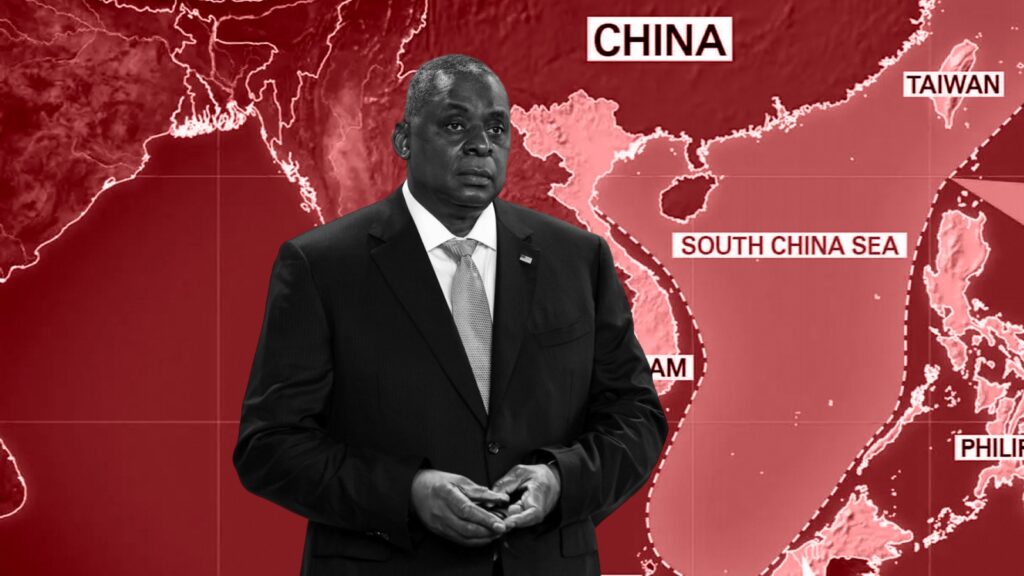US Defense Secretary Lloyd Austin accused China of engaging in “coercive behavior” in the East and South China Seas during a recent meeting in Tokyo. Austin, along with US Secretary of State Antony Blinken and their Japanese counterparts, Yoko Kamikawa and Minoru Kihara, attended the Japan-US Security Consultative Committee, also known as the “2+2” security talks. The meeting aimed to strengthen military cooperation between the two nations in response to what they described as the “greatest strategic challenge” posed by China.
US and Japan to Bolster Military Cooperation
The US and Japanese defense leaders agreed to enhance their military collaboration by upgrading the command and control of US forces stationed in Japan and boosting American-licensed missile production within the country. The move comes amid growing tensions in the region, including China’s aggressive actions in the East and South China Seas and its increasing military presence.
Command Upgrade for US Forces Japan
Japan hosts over 50,000 US troops, but the commander of the US Forces Japan (USFJ), headquartered in Yokota, Tokyo, currently lacks commanding authority, with orders coming from the United States Indo-Pacific Command (INDOPACOM) in Hawaii. The new plans aim to give the USFJ more operational capability while maintaining its reporting structure to INDOPACOM.
Lloyd Austin emphasized the significance of the command upgrade, stating, “This will be the most significant change to the US Forces Japan since its creation and one of the strongest improvements in our military ties with Japan in 70 years.” He added that the new operational capabilities would enhance collective deterrence.
Rising Concerns Over China’s Military Expansion
Austin expressed concerns over China’s coercive actions, noting its efforts to change the status quo around Taiwan and throughout the region. He also highlighted the threats posed by North Korea’s nuclear program and its collaboration with Russia, which endanger both regional and global security.
In a joint statement, the ministers accused China of seeking to reshape the international order to its advantage, describing this behavior as a serious concern for the alliance and the international community. The statement emphasized that China represents the greatest strategic challenge in the Indo-Pacific region and beyond.
China’s Growing Military Presence
China has been in disputes with numerous Asia-Pacific countries due to its expansive maritime claims in the South China Sea. It also views Taiwan as its territory and is prepared to annex it by force if necessary. In March, China announced a 7.2% increase in its defense budget, the second highest globally, indicating significant military expansion.
Enhancing Military and Cyber Cooperation
The planned command changes, set for March to coincide with Japan’s own command updates, aim to facilitate greater interoperability and cooperation on joint operations during peacetime and crises. The changes will also improve intelligence coordination, surveillance, reconnaissance, and cybersecurity.
Although the new US command in Japan will be led by a three-star general, Japan had hoped for a four-star leader. Austin noted that negotiations are ongoing, and the possibility of a four-star commander has not been ruled out.
Cybersecurity Concerns
Japan has faced numerous cybersecurity threats, which Washington considers a significant concern. Recently, Japan’s space agency experienced cyber-attacks, raising alarm despite the lack of impact on sensitive space and defense information. This has led to efforts to implement preventative measures.
The ministers reaffirmed the US commitment to “extended deterrence,” including nuclear weapons, in light of threats from Russia and China. This marks a shift from Japan’s previous hesitance to discuss nuclear issues, given its history as the only nation to suffer atomic attacks.
Strengthening Military Ties
Japan is accelerating its military buildup and increasing joint operations with the US and South Korea while seeking to bolster its domestic defense industry. The two nations have also been enhancing arms industry cooperation following an agreement between Japanese Prime Minister Fumio Kishida and President Biden in April. Working groups have been established for missile co-production and the maintenance and repair of US Navy ships and Air Force aircraft in the region.
Quad Meeting in Tokyo
On Monday in Tokyo, Blinken was scheduled to meet with counterparts from the Quad, a grouping viewed cautiously by China, to discuss maritime security and initiatives to strengthen cyber defenses.
Australia’s Foreign Minister Penny Wong remarked at the start of the talks, “We all know our region and our world are being reshaped. We all understand we face the most confronting circumstances in our region in decades. We all cherish the region’s peace, stability, and prosperity and we all know it is not a given, we all know we can’t take it for granted.”



